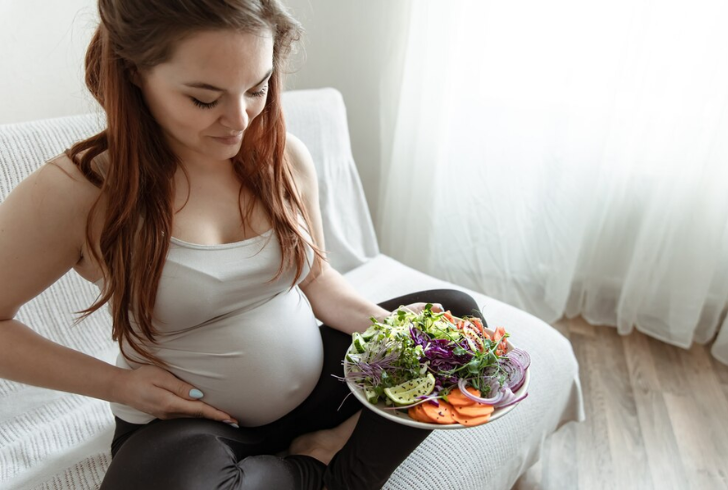Pregnancy is an exciting and transformative time filled with joy, anticipation, and, understandably, some uncertainty. Whether you’re expecting for the first time or you’ve been through it before, ensuring a healthy pregnancy is a priority. From the moment you find out you’re pregnant, taking care of your body is essential to help both you and your baby thrive.
A healthy pregnancy doesn’t just happen on its own. It requires making mindful decisions about nutrition, lifestyle, and medical care. The first steps you take in your pregnancy can make a world of difference to your baby’s health, development, and well-being.
Let’s break down some of the most crucial factors that contribute to a healthy pregnancy.
1. Nutrition and a Healthy Pregnancy
Good nutrition lays the foundation for a healthy pregnancy. What you eat today will affect your baby’s growth and development tomorrow. During pregnancy, your nutritional needs increase, so it’s essential to nourish your body properly to support both you and your growing baby.
1. Focus on a balanced diet

Eating a variety of healthy foods every day is key. Eat a balanced diet rich in fruits, veggies, whole grains, and proteins.
2. Healthy fats are your friend
Not all fats are created equal. During pregnancy, the body needs more healthy fats, especially omega-3 fatty acids, to support your baby’s brain development.
3. Hydration is important
Drink plenty of water throughout your pregnancy. It’s easy to forget to drink enough water, so keep a bottle nearby as a reminder.
4. Limit caffeine
While it’s okay to enjoy a cup of coffee or tea in moderation, keep your caffeine intake under 300 mg per day. That’s about two cups of coffee. Make sure to also consider caffeine in other drinks like soda and even chocolate.
2. Folic Acid
One of the most important steps to take during pregnancy, especially in the early stages, is ensuring you get enough folic acid.
3. Avoid Harmful Substances
During pregnancy, it’s crucial to avoid substances that can harm you or your baby. While it’s common knowledge that alcohol should be avoided, there are other substances that should also be limited or eliminated for a healthy pregnancy.
1. Say no to alcohol

Prenatal alcohol exposure is a leading cause of preventable developmental disabilities. Even small amounts of alcohol can affect your baby’s development, increasing the risk of fetal alcohol spectrum disorder (FASD), which has lifelong effects on the brain and body.
2. Smoking and vaping are harmful
Smoking tobacco and using e-cigarettes during pregnancy can have serious consequences. These habits increase the risk of miscarriage, premature birth, low birth weight, and other complications. Secondhand smoke is equally harmful to your baby, so make sure your environment is smoke-free.
3. Cannabis use
Although cannabis is legal in many places, its use during pregnancy is not recommended. Studies show that cannabis can harm your baby’s development and lower birth weight. It’s best to avoid cannabis completely during pregnancy to ensure the healthiest outcome for your baby.
4. The Importance of Physical Activity
Exercise is one of the most beneficial activities you can do during pregnancy, provided it is done safely.
How much exercise is enough?
If you weren’t active before pregnancy, start with short sessions and gradually increase your activity. Always listen to your body and take breaks when needed.
Benefits of exercise for a healthy pregnancy
Exercise helps with common pregnancy symptoms such as constipation, bloating, and backaches.
5. Prioritize Your Mental Health
Pregnancy can be an emotional rollercoaster, with hormonal changes, physical discomforts, and the anticipation of becoming a parent. While it’s normal to feel a mix of emotions, it’s essential to keep an eye on your mental health. Stress, anxiety, and even depression can impact both your well-being and your pregnancy.
1. Self-care is crucial
Taking time for yourself, whether it’s a relaxing bath, a walk in nature, or simply getting enough sleep, is important for maintaining mental health during pregnancy. If you’re feeling overwhelmed, don’t hesitate to reach out to friends, family, or a healthcare provider for support.
2. Talk about your feelings
Pregnancy can stir up a variety of emotions. If you’re feeling anxious, sad, or stressed, don’t keep it bottled up. Speak to someone you trust, whether it’s a partner, friend, or counselor. Support systems are essential during this time.
6. Partner Support

A healthy pregnancy is not just about the mom-to-be—it’s about the support system surrounding her. A strong, supportive partner can reduce stress and help the expectant mother navigate the ups and downs of pregnancy.
How partners can help
Partners can support by attending doctor’s appointments, helping with household chores, offering emotional support, and just being there to listen. After the baby arrives, the support continues as both partners learn how to care for their newborn and adjust to their new family dynamic.
7. Breastfeeding
Breastfeeding is a natural extension of pregnancy. It provides essential nutrients to your baby and offers health benefits for you as well. While breastfeeding may take time to get the hang of, the benefits it provides are immeasurable.
Why breastfeed?
Breast milk is packed with the perfect balance of nutrients to nourish your baby. It also contains antibodies that help your baby fight infections and build a strong immune system. For the mother, breastfeeding lowers the risk of certain cancers and helps with postpartum weight loss.
Your pregnancy journey is unique, but the steps to a healthy pregnancy are universal. Prioritize your health, seek support, and take care of your body and mind for the best possible outcome. Whether you’re managing morning sickness, trying to stay active, or making healthy food choices, remember that every positive change you make is an investment in the well-being of you and your baby. Keep these tips in mind, and you’ll be well on your way to achieving a healthy pregnancy.




